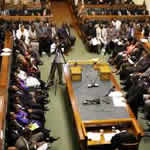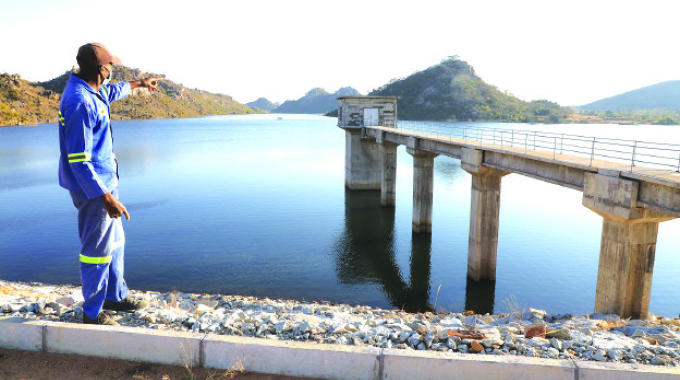Nothing unusual about amending Indigenisation Act

 THE indigenisation policy is ideologically perfect. Zimbabweans must own and benefit from their God-given resources. It’s an unobjectionable aspiration. This should not be read as meaning that the legislation that underpins this aspiration is perfect. It certainly is not. That imperfection is the collective responsibility of legislators who passed it in Parliament.
THE indigenisation policy is ideologically perfect. Zimbabweans must own and benefit from their God-given resources. It’s an unobjectionable aspiration. This should not be read as meaning that the legislation that underpins this aspiration is perfect. It certainly is not. That imperfection is the collective responsibility of legislators who passed it in Parliament.
It has become increasingly clear that the Indigenisation and Empowerment Act is a very blunt tool that urgently needs to be sharpened.
That senior Government officials continue to say positive things that contradict the policy is evidence sufficient that an intervention is necessary.
While we are all in agreement regarding the aspiration to own and benefit from our resources, the progressive political question is how best we can accomplish that aspiration.
We cannot be held to ransom by a piece of legislation that was passed by fallible human beings.
The Indigenisation and Empowerment Act was not imposed on us from the heavens, it was put to the consideration of legislators who duly passed it.
Is it possible these mortal legislators may have excluded essential elements? It certainly is. Could it be that there are factors that were not put into consideration?
The suggestion that the Act is perfect and should not be touched is outrageous.
In the same way the suggestion that those who would argue for the Act to be amended are ideologically uncertain is equally silly.
Calling for laws on rape to be strengthened is not a concession to rapists and suggestions to that effect should not be taken seriously.
That the Indigenisation and Empowerment Act could need amendments is neither controversial nor blasphemous.
Legislation is routinely amended because reasonable people recognise that oversights are an inseparable part of an endeavour.
What is important is how we respond once we identify those oversights. We can choose to be petty and satisfy our egos claiming that our first attempt was perfect or we can accept facts as they are and respond to those oversights.
President Mugabe is on record as saying that there is a distinction between resource sector investments and investments in other sectors of the economy.
Indigenisation legislation as it currently stands does not recognise nor provide for this crucial distinction. It, therefore, follows that an amendment, at least to answer this crucial point is necessary.
Another glaring inadequacy is the failure to provide for retrospective cases which raises serious questions about predictability.
Even a pan-African investor requires a certain measure of predictability from any Government.
New investments are easy enough to handle, an investor knows precisely what they are getting into and are free to make a decision.
The problem arises when you have a company that invested a decade ago under a different policy environment. It would be an egregious violation to insist that such investors take our way or the high way.
These are universal principles of business that we can no more ignore than we can gratify.
While you can bulldoze and impose there are consequences for such carelessness.
The short-sighted view is believing that we want to indigenise existing investments.
That is true but incorrect in so far as it fails to recognise the growing nature of any economy.
Billions of dollars of Foreign Direct Investment are flowing into Zambia and Mozambique every year.
Our mind should be alert to the fact that Indigenisation will immediately apply to these new investments.
If those investors believe we are unpredictable then we will not even get the chance to indigenise them, they just will not come.
Therefore it is important to preserve our reputation if we want to indigenise anyone. Investors have repeatedly said they have no problem with indigenisation as a policy but are concerned about issues of principle such as the retrospective application of the law.
These are serious concerns that cannot be wished away but must be answered clearly in a legal framework.
This is precisely why there must be latitude for ministerial discretion as well as a clear and predictable framework that introduces incentives for such companies to indigenise and a pathway to the same.
Indigenisation must make business sense and there should be punitive measures in place to ensure that, once a workable framework has been established, companies that do not indigenise lose out in a business sense.
The tax regime is quite an effective tool in this regard and I suspect ZIMRA would enthusiastically volunteer some ideas.
The danger in this conversation is to conflate the need for amendments with a desire to forsake the policy.
There two a decidedly different and any suggestion otherwise is either malicious or just ignorant.
Ndatenda, ndinimuchembere wenyu Amai Jukwa.









Comments